Washing machine semi-automatic with automatic wringing
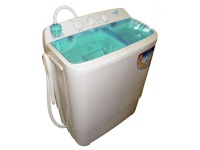
If there is no centralized water supply in the house, laundry can become one of the difficult and labor-intensive activities. Help in such situations are able to machines semi-automatic, especially those models that not only wash, but also spin the laundry.
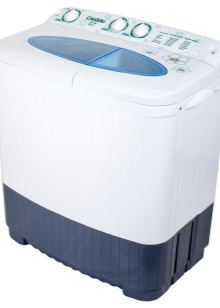
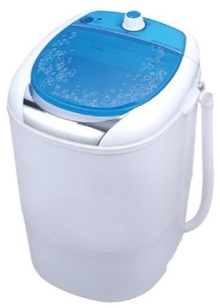
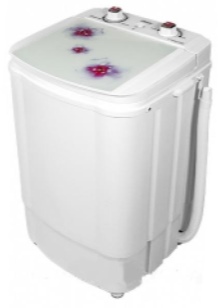
Differences from automatic washing machines
The main difference between semi-automatic models and fully automatic machines is the need for user participation in some washing processes. If it is enough to load the laundry into the automatic machine, turn on the desired program, and then take out the washed clothes and hang them up to dry, then the semi-automatic machine will have to help.
At first it is necessary to pour hot water into semi-automatic machine (there are models with heaters for heating water, for example, Feya 2P, but they are few), pour the detergent and load the laundry, then wait until the clothes are washed and put them into the tank with a centrifuge for wringing.
Other significant differences of semi-automatic machines from the more common automatic machines are:
- Less weight.
- Smaller dimensions.
- Mechanical controls.
- Separate tanks for washing and spinning.
- Only vertical loading.
- More affordable cost.
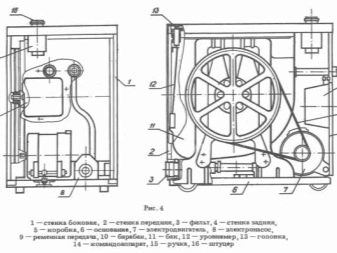
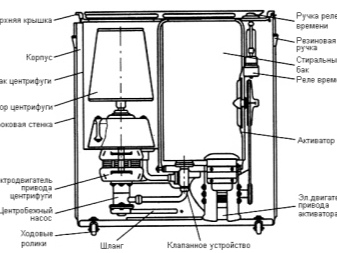
Pros of
- Semi-automatic squeeze machines have compact dimensions.
- Due to its low weight, this machine can be carried to another room or transported in a car.
- Electricity and water consumption of semi-automatic machines is much less than that of automatic machines.
- Since the loading in such models is vertical, you can add clothes to the machine during washing.
- Such machines are very easy to use, and the duration of washing in them is much shorter than in automatic machines.
- When using such a machine does not need to add water softeners. In addition, washing can be done with any detergent.
- With such a technique, the hostess does not depend on plumbing and drainage.
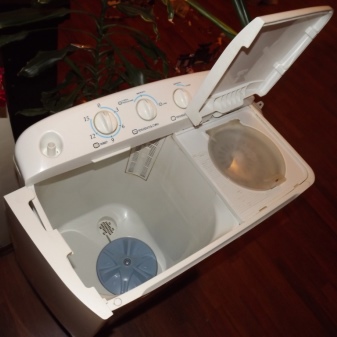
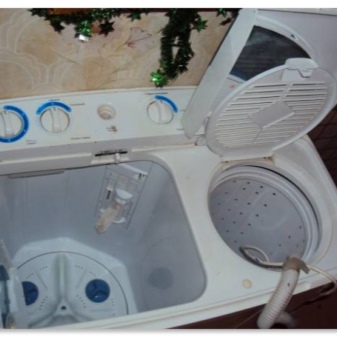
Due to their small size, semi-automatic washing machines will be a great choice for small spaces.
Disadvantages
- In the process of washing in a semi-automatic machine, the hostess has to take an active part.
- Semi-automatic machines are characterized by less power and lower quality washing.
- Functionality in such machines can be called limited, since most semi-automatic machines have only 1-2 washing modes.
- If there is no access to hot water, it will have to be heated for washing separately.
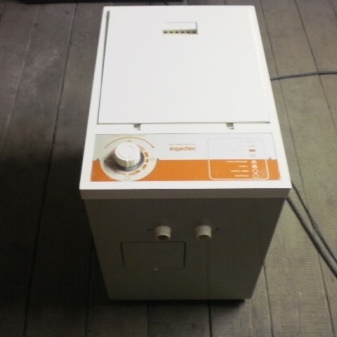
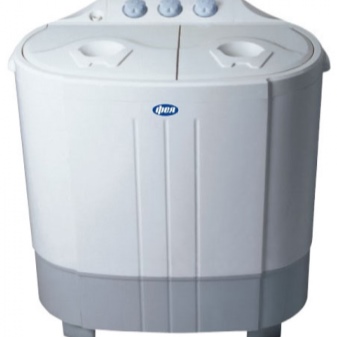
Types
Semi-automatic machines, in which there is a spin, can differ:
- The working mechanism. Such machines can be activator (this is the most common type) or drum.
- The number of tanks. In such machines, there is one tank, and then the washing is carried out in it, and then the spinning. More common are products with two tanks, one of which washes the laundry, and in the second (with a centrifuge) - spinning.
- Size. Semi-automatic machine with one tank has small dimensions, so it is often chosen for dacha, and the two-tank model because of its more impressive size is preferable for home use.
- Additional functions. In a semi-automatic machine there is a heater, and there may be additional washing programs.
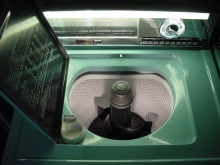
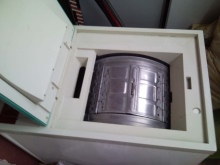
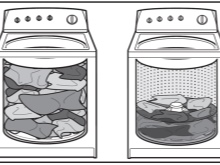
Some semi-automatic machines have a reverser, which allows you to rotate the laundry in both directions.
How to choose correctly?
Choosing a semi-automatic machine with a spin, pay attention to:
- Electricity consumption class. The most economical option - class A, but such machines cost more than models with class B or C.
- Washing class. The best choice - class A. The further in the alphabet, the lower the quality of removal of dirt.
- The allowable load. If the machine is bought for a country house, it is quite suitable and semi-automatic, which holds 2-4 kg of laundry, and for home use requires a device with a larger capacity.
- Tank material. Stainless steel tank is characterized by durability, and the plastic tank - a low price and practicality.
- Price. The most inexpensive version of the machine with a semi-automatic wringer can be purchased for 3-4 thousand rubles, but the higher the quality of the machine and the higher its functionality, the more expensive this technique will cost.
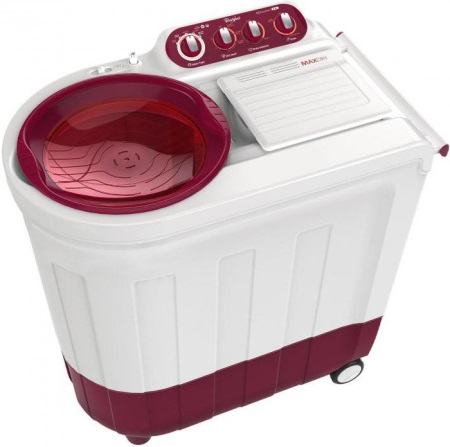
Review of models
The most popular among semi-automatic machines with the spin option are the following models:
|
Assol XPB70-688AS |
Unit UWM-220 |
Feya SMPA 3002H |
Snow White B 9000LG |
|
|
Machine type |
Activator |
Activator |
Activator |
Activator |
|
Loading type |
Vertical |
Vertical |
Vertical |
Vertical |
|
Loading volume |
7 kg |
4.5 kg |
3 kg |
9 kg |
|
Control type |
Mechanical |
Mechanical |
Mechanical |
Mechanical |
|
Tank Material |
Plastic |
Plastic |
Plastic |
Plastic |
|
Machine weight |
20 kg |
16 kg |
11 kg |
26 kg |
|
Reverse |
Yes |
No |
No |
No |
|
The pump |
Yes |
No |
Yes |
Yes Yes |
|
Features |
The machine has a filter for catching lint. The power of the machine is 350 W. It has two washing modes - normal and delicate. When wringing, it holds 6 kg of laundry. |
The machine has a timer for washing (15 minutes) and spinning (5 minutes). |
The spin speed is 1320 rpm. The centrifuge holds up to 2 kg of washed clothes. |
When wringing, it can hold 6.5 kg of laundry. Duration of one wash is 6 minutes. |
|
Average price |
8000 rubles |
5000 rubles |
5000 rubles |
9000 rubles |
In the video below you can find a review of another washing machine semi-automatic activator type Saturn ST-WK7618.
How to use?
The work of almost all semi-automatic machines with a spin includes the following steps:
- Filling the machine with warm water.
- Adding laundry detergent to the water.
- Loading the laundry into the machine.
- Plugging the machine into the mains.
- Selecting the desired program (if there are several).
- Start the wash.
- Rinse with water change.
- Start the spin in the same tank or after transferring the laundry to another tank.
- Unplugging the appliance.
- Removing the laundry.
- Emptying the water.
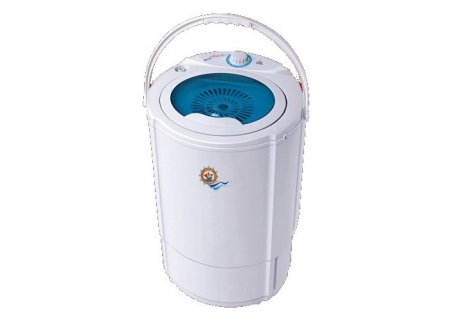
Installation
To install a semi-automatic machine in which you can spin the laundry, no special conditions are needed. Such a machine requires only the presence of an electrical network. However, it is worth paying attention to the surface on which the machine will stand. It is desirable that it be as flat as possible, because in the process of spinning a strongly vibrating semiautomatic machine can move.




